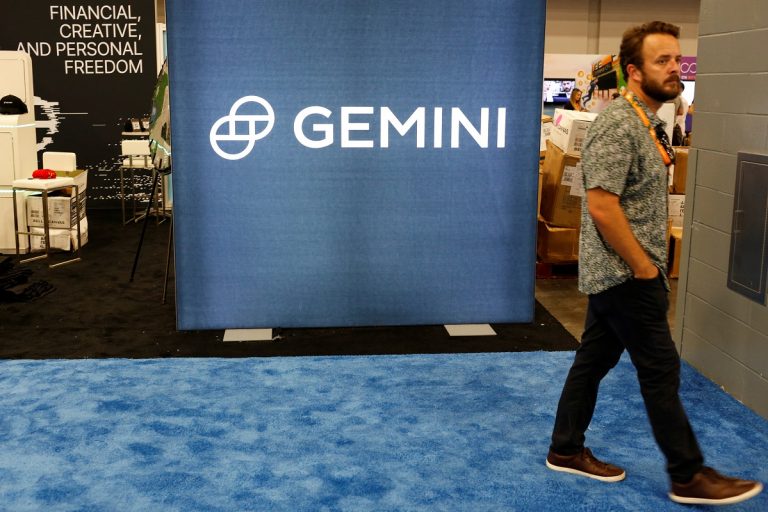
Gemini, the cryptocurrency exchange founded by the Winklevoss twins, has filed a complaint against Genesis, a digital asset trading and lending platform, over $1.6 billion worth of Grayscale Bitcoin Trust (GBTC) shares. Gemini claims that Genesis breached a contract that gave Gemini the right to buy GBTC shares from Genesis at a discount.
GBTC is a publicly traded trust that holds bitcoin and tracks its price. Investors can buy and sell GBTC shares on the secondary market, but they cannot redeem them for actual bitcoin. GBTC shares often trade at a premium or discount to the underlying bitcoin value, depending on the supply and demand.
According to the complaint, Gemini and Genesis entered into an agreement in February 2020, where Genesis agreed to sell GBTC shares to Gemini at a 2% discount to the net asset value (NAV) of the trust. The agreement also gave Gemini the option to buy additional GBTC shares from Genesis at the same discount until February 2023.
Register for Tekedia Mini-MBA edition 17 (June 9 – Sept 6, 2025) today for early bird discounts. Do annual for access to Blucera.com.
Tekedia AI in Business Masterclass opens registrations.
Join Tekedia Capital Syndicate and co-invest in great global startups.
Register to become a better CEO or Director with Tekedia CEO & Director Program.
However, Gemini alleges that Genesis stopped honoring the agreement in July 2021, when the GBTC shares started trading at a significant discount to the NAV. Gemini says that it exercised its option to buy more GBTC shares from Genesis, but Genesis refused to sell them. Gemini claims that it lost out on an opportunity to buy GBTC shares at a lower price and sell them at a higher price later.
Gemini is seeking damages for breach of contract, breach of good faith and fair dealing, and unjust enrichment. Gemini also wants the court to order Genesis to sell GBTC shares to Gemini at the agreed-upon discount. Genesis has not yet responded to the complaint, which was filed in the Supreme Court of New York on October 27. Genesis is a subsidiary of Digital Currency Group (DCG), which also owns Grayscale, the sponsor of GBTC. DCG is not named as a defendant in the lawsuit.
Gemini, the cryptocurrency exchange founded by the Winklevoss twins, has filed a complaint against Genesis, a digital asset trading and lending platform, over $1.6 billion worth of Grayscale Bitcoin Trust (GBTC) shares. Gemini claims that Genesis breached a contract that gave Gemini the right to buy GBTC shares from Genesis at a discount.
GBTC is a publicly traded trust that holds bitcoin and tracks its price. Investors can buy and sell GBTC shares on the secondary market, but they cannot redeem them for actual bitcoin. GBTC shares often trade at a premium or discount to the underlying bitcoin value, depending on the supply and demand.
In this article, we will explain what GBTC is, how it works, and why it is relevant to the lawsuit between Gemini and Genesis.
GBTC shares are created through a process called private placement, where accredited investors can buy GBTC shares directly from Grayscale at the NAV of the trust. NAV stands for net asset value, which is the value of the bitcoin held by the trust divided by the number of shares outstanding. Private placement is only available periodically and has a minimum investment amount and a lock-up period.
GBTC shares are also traded on the secondary market, where anyone can buy and sell them through brokers or platforms like OTC Markets. The secondary market price of GBTC shares may differ from the NAV of the trust, depending on the supply and demand of the shares. Sometimes, GBTC shares trade at a premium to the NAV, which means investors are willing to pay more than the value of the bitcoin held by the trust. Other times, GBTC shares trade at a discount to the NAV, which means investors are willing to pay less than the value of the bitcoin held by the trust.
The premium or discount of GBTC shares is influenced by several factors, such as the availability of private placement, the lock-up period of private placement investors, the market sentiment towards bitcoin, the regulatory environment for crypto assets, and the competition from other products that offer exposure to bitcoin.
According to the complaint, Gemini and Genesis entered into an agreement in February 2020, where Genesis agreed to sell GBTC shares to Gemini at a 2% discount to the NAV of the trust. The agreement also gave Gemini the option to buy additional GBTC shares from Genesis at the same discount until February 2023.
However, Gemini alleges that Genesis stopped honoring the agreement in July 2021, when the GBTC shares started trading at a significant discount to the NAV. Gemini says that it exercised its option to buy more GBTC shares from Genesis, but Genesis refused to sell them. Gemini claims that it lost out on an opportunity to buy GBTC shares at a lower price and sell them at a higher price later.
Gemini is seeking damages for breach of contract, breach of good faith and fair dealing, and unjust enrichment. Gemini also wants the court to order Genesis to sell GBTC shares to Gemini at the agreed-upon discount. Genesis has not yet responded to the complaint, which was filed in the Supreme Court of New York on October 27. Genesis is a subsidiary of DCG, which also owns Grayscale, the sponsor of GBTC. DCG is not named as a defendant in the lawsuit.



